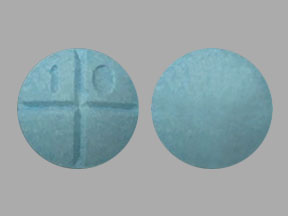Amphetamine Interactions
There are 220 drugs known to interact with amphetamine, along with 13 disease interactions, and 3 alcohol/food interactions. Of the total drug interactions, 37 are major, 175 are moderate, and 8 are minor.
- View all 220 medications that may interact with amphetamine
- View amphetamine alcohol/food interactions (3)
- View amphetamine disease interactions (13)
Most frequently checked interactions
View interaction reports for amphetamine and the medicines listed below.
- Abilify (aripiprazole)
- Adderall (amphetamine / dextroamphetamine)
- Adderall XR (amphetamine / dextroamphetamine)
- Ambien (zolpidem)
- Aspirin Low Strength (aspirin)
- Benadryl (diphenhydramine)
- Cymbalta (duloxetine)
- Fish Oil (omega-3 polyunsaturated fatty acids)
- Klonopin (clonazepam)
- Lamictal (lamotrigine)
- Lexapro (escitalopram)
- Lithium Carbonate ER (lithium)
- Lyrica (pregabalin)
- Metoprolol Succinate ER (metoprolol)
- ProAir HFA (albuterol)
- Prozac (fluoxetine)
- Seroquel (quetiapine)
- Synthroid (levothyroxine)
- Tylenol (acetaminophen)
- Valium (diazepam)
- Vitamin B12 (cyanocobalamin)
- Vitamin C (ascorbic acid)
- Vitamin D2 (ergocalciferol)
- Vitamin D3 (cholecalciferol)
- Vyvanse (lisdexamfetamine)
- Wellbutrin (bupropion)
- Wellbutrin XL (bupropion)
- Xanax (alprazolam)
- Zoloft (sertraline)
- Zyrtec (cetirizine)
Amphetamine alcohol/food interactions
There are 3 alcohol/food interactions with amphetamine.
Amphetamine disease interactions
There are 13 disease interactions with amphetamine which include:
- cardiovascular
- glaucoma
- agitation
- cardiac disease
- glaucoma
- hypertension
- psychiatric disorders
- substance abuse
- tics
- liver disease
- renal dysfunction
- seizure disorders
- diabetics
More about amphetamine
- amphetamine consumer information
- Compare alternatives
- Reviews (141)
- Drug images
- Side effects
- Dosage information
- During pregnancy
- Support group
- Drug class: CNS stimulants
- Breastfeeding
Related treatment guides
Drug Interaction Classification
| Highly clinically significant. Avoid combinations; the risk of the interaction outweighs the benefit. | |
| Moderately clinically significant. Usually avoid combinations; use it only under special circumstances. | |
| Minimally clinically significant. Minimize risk; assess risk and consider an alternative drug, take steps to circumvent the interaction risk and/or institute a monitoring plan. | |
| No interaction information available. |
Further information
Always consult your healthcare provider to ensure the information displayed on this page applies to your personal circumstances.


